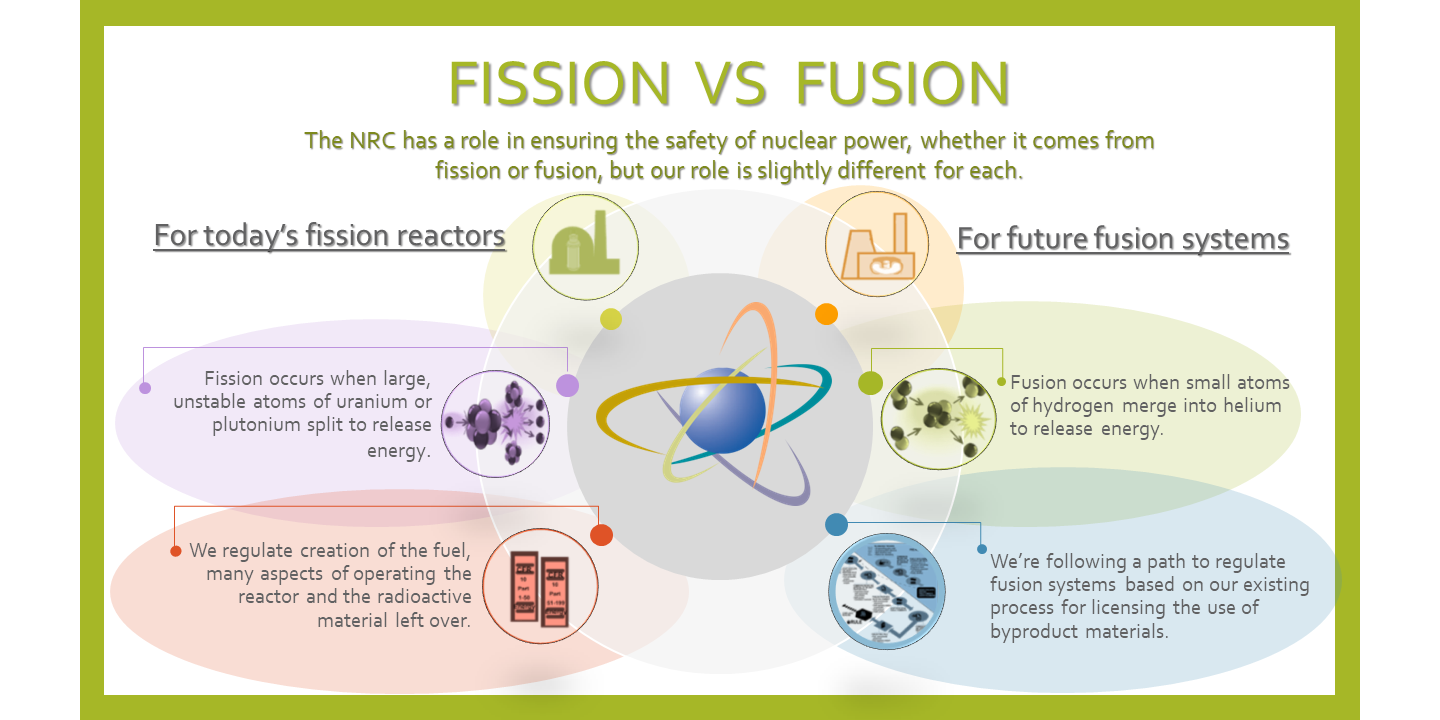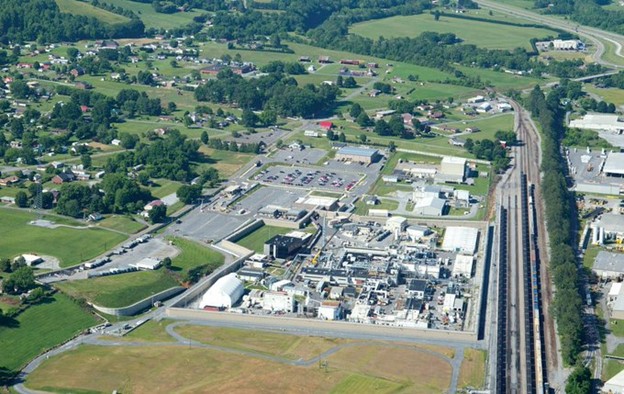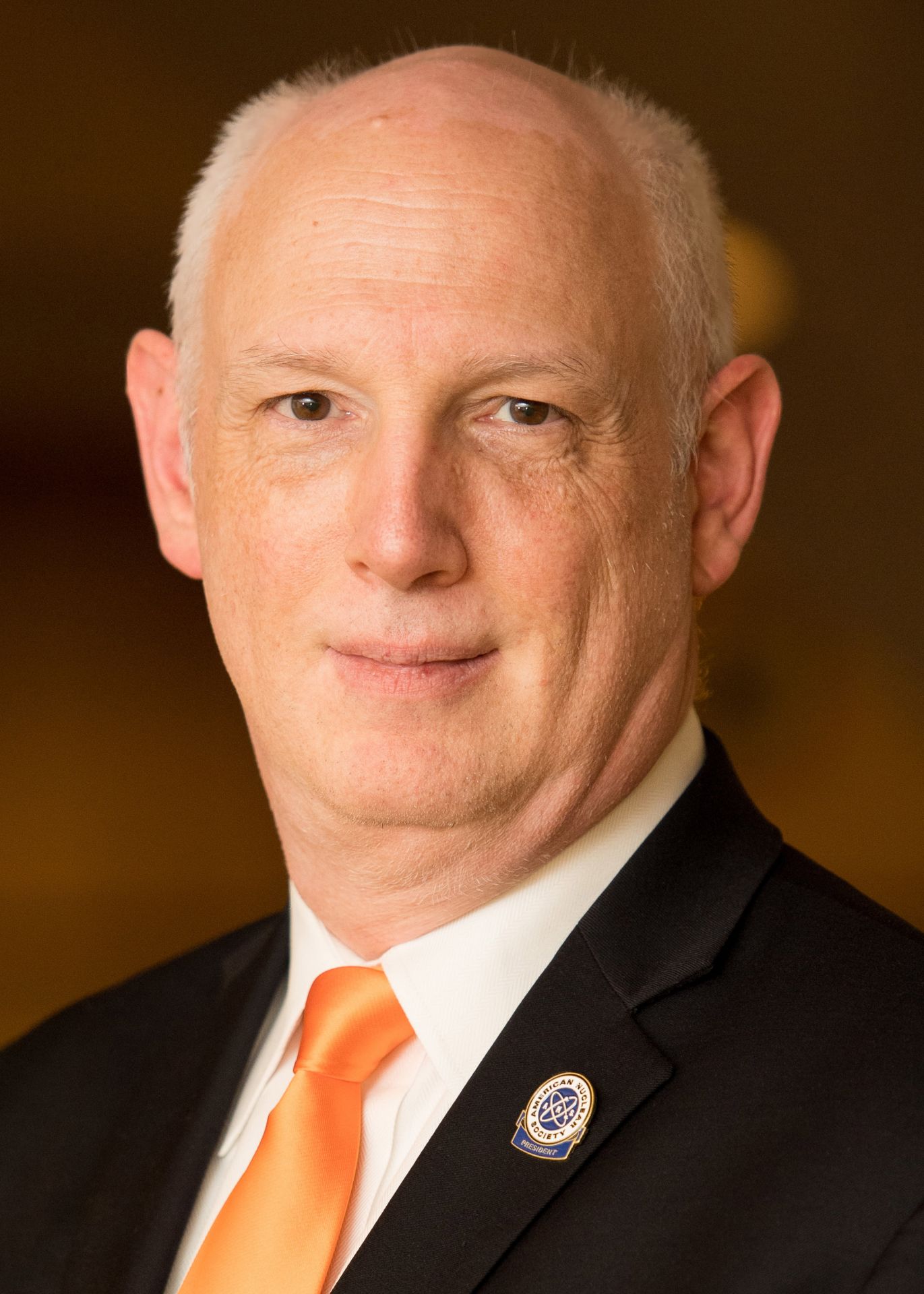Joo Han-Gyu, KAERI president, on teleconference with Albertan ministers Brian Jean and Rajan Sawhney during the signing of the MOU. (Photo: KAERI)
The Korea Atomic Energy Research Institute (KAERI) and the government of Alberta have agreed on a comprehensive cooperation framework to explore the viability of using small modular reactors to help decarbonize the province—Canada’s biggest energy producer and its biggest polluter. The announcement comes the same week that Alberta’s United Conservative Party government released a climate plan aimed at reaching net zero by 2050.
A rendition of Terrestrial Energy’s IMSR. (Image: NRC)
The Canadian Nuclear Safety Commission (CNSC) has completed phase two of its prelicensing vendor design review for Terrestrial Energy’s Integral Molten Salt Reactor (IMSR), the Ontario-based advanced nuclear technology firm announced Tuesday. Phase one of the VDR commenced in April 2016 and was completed in November of the following year.
The ministers representing their respective nations as the statement on civil nuclear fuel cooperation was announced were (from left) Jonathan Wilkinson, minister of natural resources of Canada; Yasutoshi Nishimura, Japan’s minister of economy, trade, and industry; Jennifer Granholm, U.S. energy secretary; Grant Shapps, U.K. energy security secretary; and Agnes Pannier-Runacher, French minister for energy transition.
A civil nuclear fuel security agreement between the five nuclear leaders of the G7—announced on April 16 on the sidelines of the G7 Ministers’ Meeting on Climate, Energy and Environment in Sapporo, Japan—establishes cooperation between Canada, France, Japan, the United Kingdom, and the United States to flatten Russia’s influence in the global nuclear fuel supply chain.
Representatives of six nuclear organizations sign a declaration in Sapporo, Japan. Seated, left to right, are George Christidis (representing CNA chief executive officer John Gorman), Shiro Arai, Maria Korsnick, Tom Greatrex, Yves Desbazeille, and Sama Bilbao y León. (Photo: World Nuclear Association)
G7 governments should support life extension for today’s power reactor fleet, restart operable units, and accelerate the deployment of advanced reactors, states a joint declaration issued April 16 at the Nuclear Energy Forum, a first-of-its-kind colloquy held on the margins of the G7 Ministers’ Meeting on Climate, Energy and Environment in Sapporo, Japan.
The Neckarwestheim nuclear power plant in Germany.
Ignoring a last-minute plea from a long list of scientific luminaries (including Nobel laureate Steven Chu and climate scientist James Hansen) to reconsider, as well as recent polls showing pronuclear sentiment among a majority of its population, Germany shut down its last three operating nuclear power plants late Saturday, ending 60-plus years of electricity generation from fission. (Germany’s first nuclear power plant, Kahl, was commissioned in 1961 and closed in 1985.)
Nuclear Fuel Services in Erwin, Tenn. (Photo: BWX Technologies)
BWX Technologies announced on April 10 that its Nuclear Fuel Services subsidiary in Erwin, Tenn., has been awarded a five-year, $428 million contract from the National Nuclear Security Administration to purify and convert high-enriched uranium (HEU) from an oxide to a metal. The Phase II contract follows the successful completion by NFS of a $57.5 million contract awarded two years ago for a process line design and pilot demonstration.
The DOE's Savannah River Site. (Photo: DOE)
The Defense Nuclear Facilities Safety Board (DNFSB) is scheduled to visit the Department of Energy’s Savannah River Site in South Carolina the week of May 8 to discuss ongoing safety concerns and the protection of the public and workforce, as well as the DOE’s effectiveness in addressing those concerns.

















